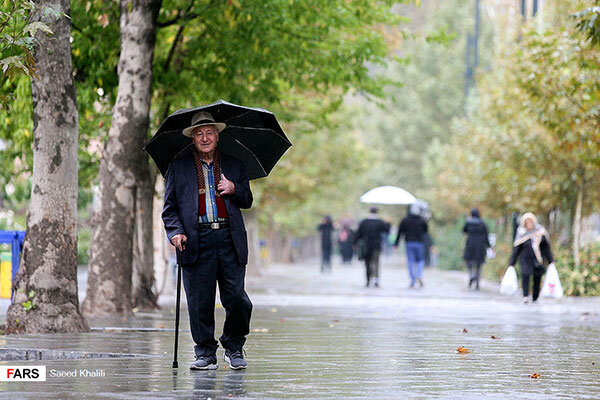Long-term rainfall down by 34% in autumn

TEHRAN – While the country received 40.3 mm of rain during the autumn (September 23-December 21), it experienced a 34.5 percent decrease compared to the long-term average of 61.6 mm.
The Meteorological Organization has reported that the precipitation rate during autumn was not very favorable, being considered one of the driest seasons in the past 50 years.
The amount of rainfall that poured over the country in the past month (November 20–December 21) was 17.9 mm, which shows a decrease of 44.2 percent compared to the long-run average of 32 mm, according to the national center for drought and crisis management.
More drought predicted over next 5 years
According to the World Meteorological Organization's multiannual forecast, in the next five years, Iran’s average rainfall will decline by 75 percent, and the temperature rises by 50-75 percent compared to the long-term average.
Accordingly, the adoption of national policies to adapt to low rainfall and reduce the consequences of drought is inevitable, and the Seventh Development Plan should be prepared on the basis of drought and climate change, Vazifeh said in May.
A large part of the country has been hit by severe drought during the past 12 months. Forecasts indicate that we will not have significant rainfall in the remaining months of the current water year, so that, we face severe to very severe drought in most parts of the country, he stated.
What would be the consequences
Climate change is a fact that cannot be run over, whether the temperature raises over 2 or 6°C, natural incidents such as flooding, droughts, and severe storms are among the main consequences of climate change.
Moreover, water and food shortages, water-borne illnesses, cold or heat-related deaths will come up as the results of temperature variations. In tropical areas also the risk of floods will raise.
Heavy rain and other extreme weather events will become more frequent, which can lead to floods along with decreasing water quality, but also decreasing availability of water resources in some regions.
Climate change will also bring extreme wet and dry seasons, which mainly causes rainfall fluctuations and water scarcity. While there have been prolonged droughts nationwide in past recent years leaving people scrambling for water.
So, nations must take steps to reduce greenhouse gas emissions in the future, preventing the emissions peak, otherwise, they might not be able to breathe on the planet in the future, or migrate to other places if found.
The study may also come efficient when it comes to making the people aware of climate change impact in their own city, within their lifetime, to avoid experiencing an entirely new climate that is beyond human experience.
FB/MG
